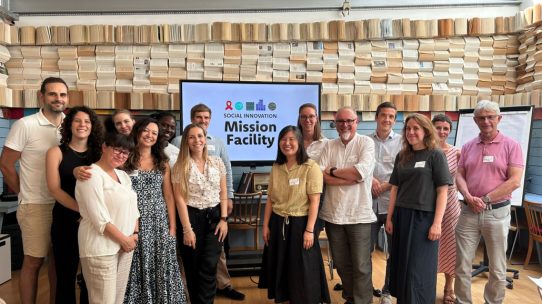During Social Innovation Summer School Mumbai, I found myself sitting next to a Singaporean with deep experience in open-source tech for social good—we talked for hours about our shared work in open government and civic technology, and ten years later, having met just that once, we’re still in touch. In Istanbul, I facilitated a Future of Work session where people from around the globe, gave me more valuable feedback and creative energy than I’d found in dozens of professional settings back home—a framework I used for several years afterward—and I still talk regularly with several people from that group.
For me, SIX created that kind of magic repeatedly across eight countries over a decade. I was (delightfully) astonished at how, despite our wildly different governance and policy arrangements, political and economic systems, and languages, cultures, and histories, we experienced shared challenges—data, resources, and coalition building key among them. This made every conversation an opportunity to find novel solutions, insights, or innovations, and to forge new friendships.
SIX created something rare: a supportive, learning-centered environment where we were simultaneously students and teachers, where practical steps emerged alongside bold visions, and where place—the location of our activities—informed the design of our experience. We didn’t just attend sessions together—we ate, laughed, and danced together, engaging in those deep conversations about serious topics that reminded us of our shared humanity.
In a world that feels increasingly fragmented, SIX’s model of bringing diverse changemakers together to learn from each other feels more essential than ever. In 2025 (and beyond), we need SIX to reach more people in more places, fostering the kind of cross-pollination of ideas and relationships that can only happen when passionate problem-solvers gather, ready to learn and grow together.
SIX invites us to engage with the “why.” SIX slows me down and removes me from my immediate context so that I can see the broader impacts and deeper implications of decisions.
– Kristin Wolff






